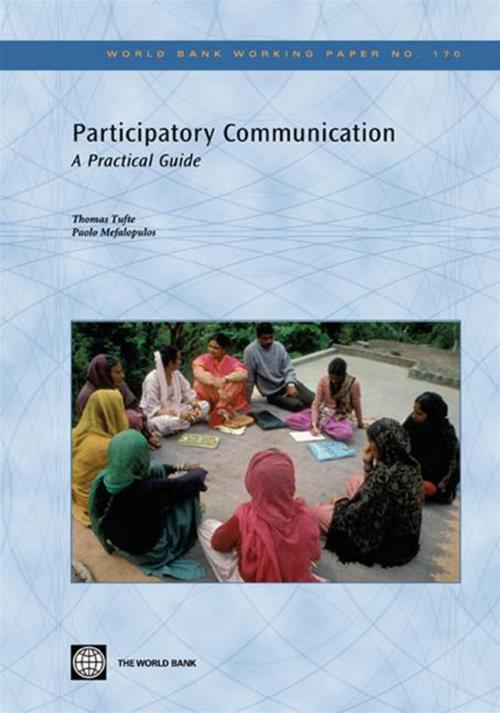Participatory Communication: A Practical Guide
Business & Finance, Economics, Sustainable Development| Author: | Thomas Tufle; Mefalopulos Paolo | ISBN: | 9780821380086 |
| Publisher: | World Bank | Publication: | July 2, 2009 |
| Imprint: | Language: | English |
| Author: | Thomas Tufle; Mefalopulos Paolo |
| ISBN: | 9780821380086 |
| Publisher: | World Bank |
| Publication: | July 2, 2009 |
| Imprint: | |
| Language: | English |
What do we mean when we say participatory communication? What are the practical implications of working with participatory communication strategies in development and social change processes? What experiences exists in practice that documents that participatory communication adds value to a development project or programme?The aim of this user guide on participatory communication is to provide answers to some of these questions. Many communication practitioners and development workers face obstacles and challenges in their practical work. A participatory communication strategy offers a very specific perspective on how to articulate social processes, decision-making processes and any change process for that matter. Participatory approaches are nothing new. However, what is new is the proliferation of institutions, especially governmental but also non-governmental, that seek participatory approaches in their development initiative.This guide seeks to provide perspectives, tools and experiences regarding how to go about it with participatory communication strategies. It is conceived as a guide that hopefully can be of relevance and utility for development workers in the field. It is targeted at both at government and their officials, World Bank staff and at civil society.
What do we mean when we say participatory communication? What are the practical implications of working with participatory communication strategies in development and social change processes? What experiences exists in practice that documents that participatory communication adds value to a development project or programme?The aim of this user guide on participatory communication is to provide answers to some of these questions. Many communication practitioners and development workers face obstacles and challenges in their practical work. A participatory communication strategy offers a very specific perspective on how to articulate social processes, decision-making processes and any change process for that matter. Participatory approaches are nothing new. However, what is new is the proliferation of institutions, especially governmental but also non-governmental, that seek participatory approaches in their development initiative.This guide seeks to provide perspectives, tools and experiences regarding how to go about it with participatory communication strategies. It is conceived as a guide that hopefully can be of relevance and utility for development workers in the field. It is targeted at both at government and their officials, World Bank staff and at civil society.















